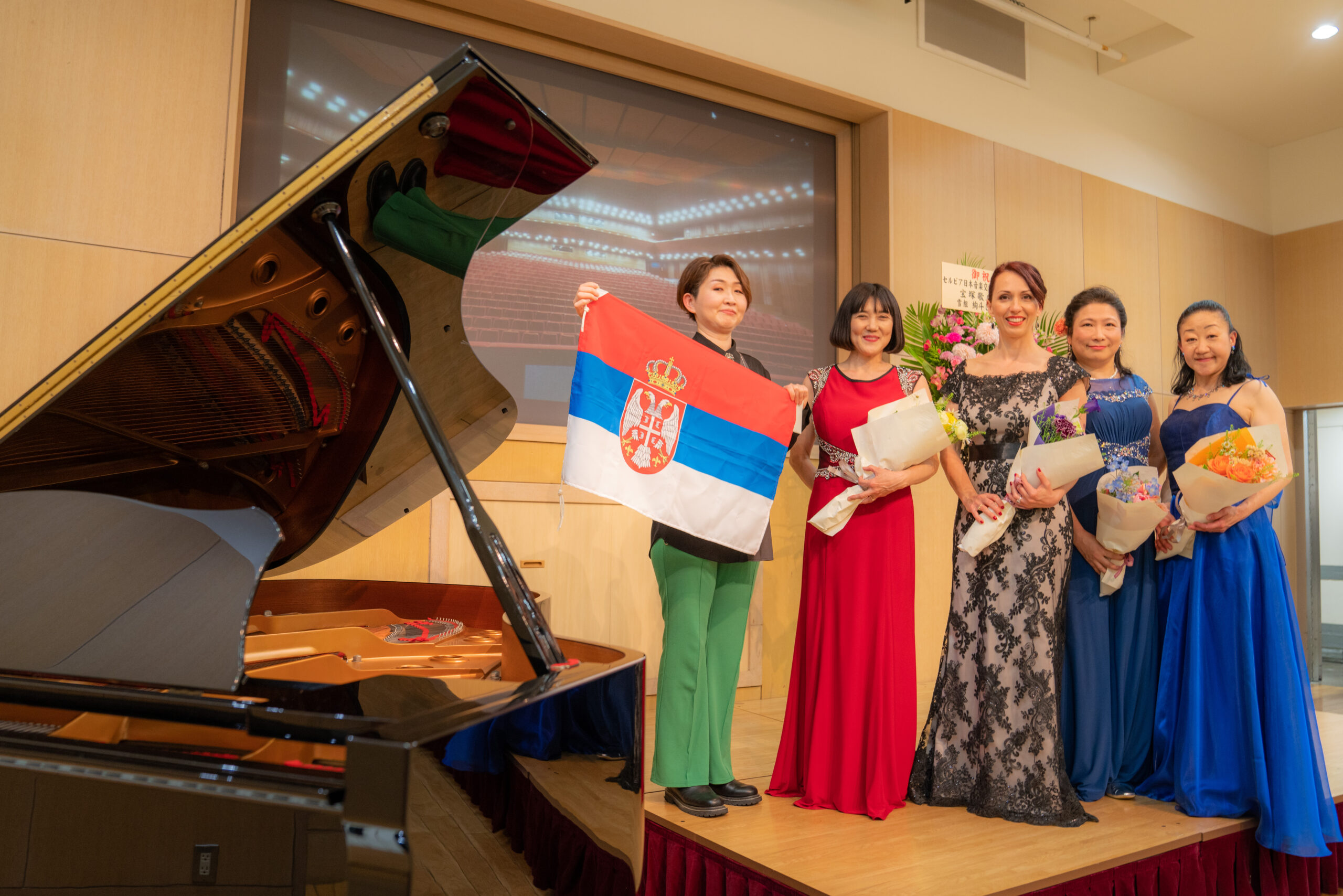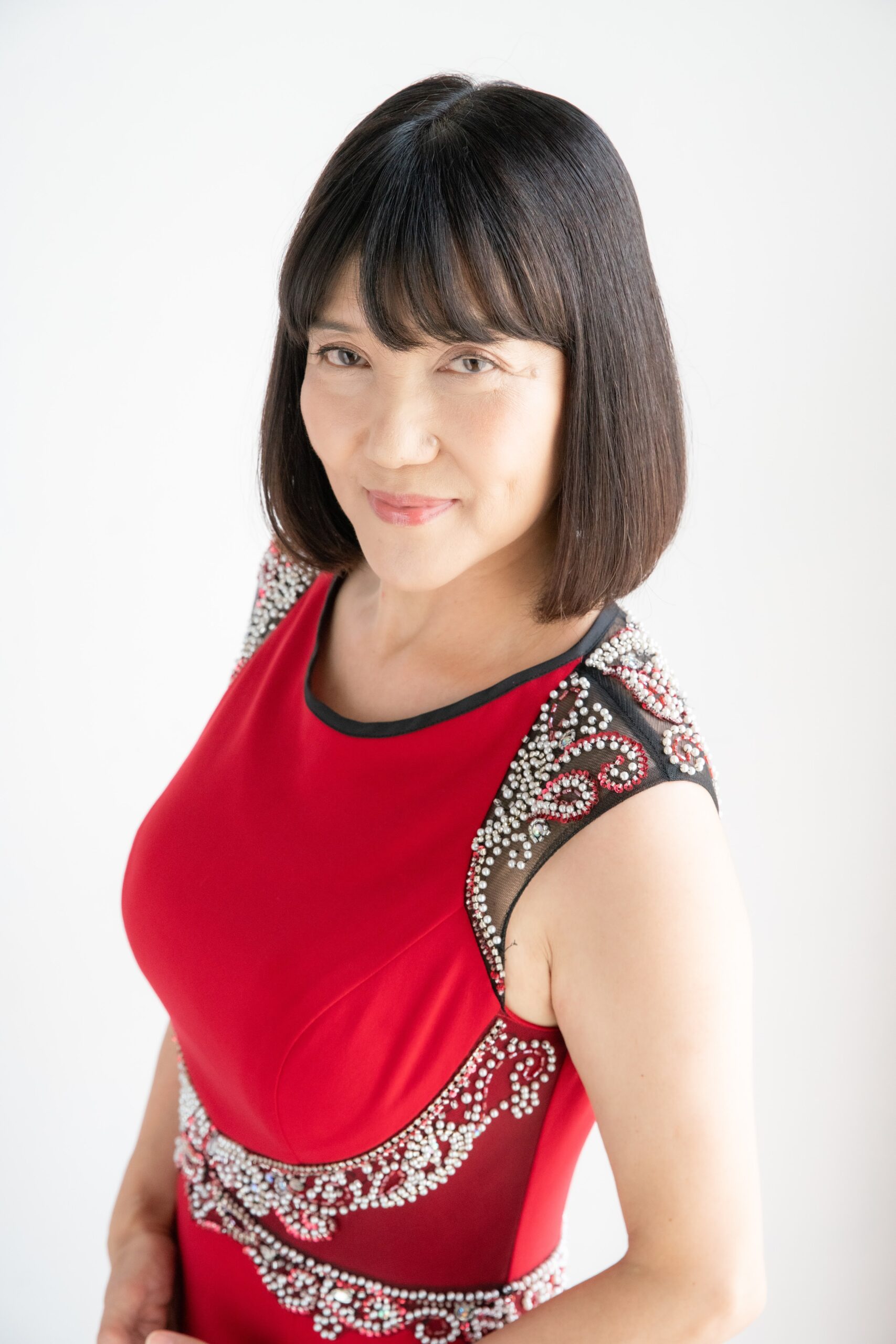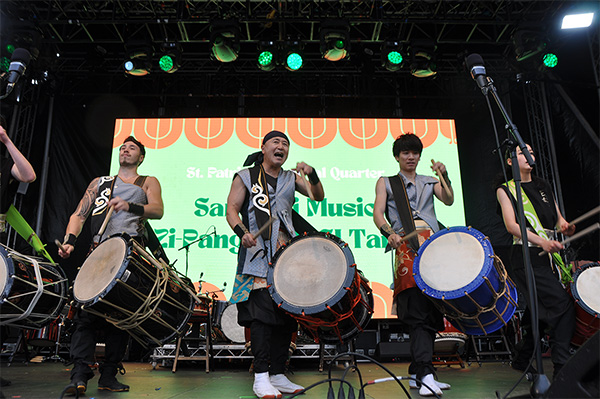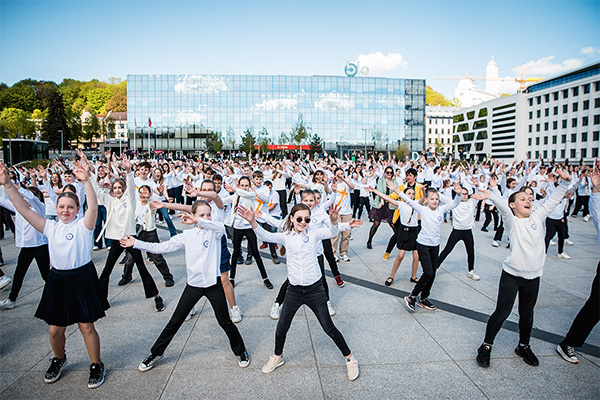Column
ColumnReunion with the Songstress of the Enchanting City – Novi Sad
“See you next time in Tokyo!”
It has been almost eight months since the day we made our promise in Novi Sad. I never dreamt that our collaboration would happen so soon.
My first encounter with Ms. Jelena Končar was backstage at the Serbian National Theatre in Novi Sad. The guard led me from the backstage entrance to the back of the stage by his phone light. Then, there was a beautiful woman appeared and asked me “Is one music stand enough?” It was my second day in Serbia. Jet-lagged from a long flight, I was a little hesitant at the sight of her, but I said “Yes!” raising my right hand in the air.
Official contact between Japan and the country of Serbia began in 1882 when Emperor Meiji exchanged letters with King Milan I of Serbia. Last year marked 140 years since that event. With the designation of Novi Sad as the European Capital of Culture, various Japanese cultural projects were implemented in Serbia. On this occasion, I had the opportunity to give a performance in Novi Sad the program ‘Rakugo and Music’ introducing Edo culture, together with Rakugo Master Sanyutei Rakumaro, pianist Ms.Yoshiko Kadota and photographer Mr. Masaki Nakamura. Starting with the new cultural centre “Barka Cultural Station” in Novi Sad, we gave five performances and took part in one exchange programme across five cities in Serbia. It was on this occasion that we met Ms. Končar.
It was my first time to visit Novi Sad. The streets were quiet and atmospheric with a strong sense of the Austro-Hungarian Empire culture. The “Name of Mary Catholic Church” stands in the centre of the old town centre, while the Serbian Orthodox Church and the Jewish synagogue are also located in the town, creating a stately mixture of different cultures.
The Serbian people are very friendly to Japan. Many are interested in Japanese culture, including martial arts, tea ceremonies and literature, as well as pop culture such as anime and cosplay. They are very popular among young people. Perhaps this is why we were so welcome in Novi Sad and in each of the cities we visited. The audience seemed to really enjoy “Rakugo” – a single performer plays several roles in a seated performance, using a fan and a “tenugui” hand towel as props. They were also very interested in the ‘Introduction to Edo Townspeople’s Culture’ through Edo songs. We realised the importance of cultural exchange projects in Serbia.
Mr. Milan Veličković, who runs the Tendoryu Aikido Dojo in Novi Sad, was instrumental in making our Edo culture introduction project ‘Rakugo and Music‘ an associated event of the European Capital of Culture. He has visited Japan many times. His dignified manner is the very embodiment of “Dou” (the Art of the Way). As a martial arts “naginata” practitioner, I felt even closer to Mr. Končar when I heard that he had studied “aikido” at Mr. Veličković’s dojo.
The ‘Jewellery Box of the Danube‘ concert opened with a video filmed and created by Mr. Masaki Nakamura. Before dawn in the city of Novi Sad, a dot of light became a ray of light. The shining light covered the city and shot straight onto the stage of the Serbian National Theatre. The theatre’s auditorium occupied the entire screen and was filled with a sense of realism, as if it were about to burst into applause at any moment.

In addition to Serbian and Japanese songs, the programme included operatic arias such as Carmen, performed by Ms. Končar. Her rich and mature voice attracted the audience. My favourite piece was Miloj Milojevic’s ‘Japan‘. The longing for the as yet unseen land of Yamato was portrayed in a long, flowing melody, to which the piano accompaniment responded with a great flow and swell. In contrast to this was Isidor Bajić’s Lullaby. The quiet, beautiful melody was full of tenderness. It was as if a mother was loving her child who had fallen asleep with an angel watching over her.
The programme was also rich in variety, including Serbian songs by me, Japanese songs and duets by Ms. Končar, and an ensemble of Serbian and Japanese songs by a Japanese bamboo flute ”Shinobue” player, Ms. Tatara Toki. This was my second attempt at Serbian songs. As I also sing Russian songs, I can read the Cyrillic alphabet relatively easily, but when it comes to singing, it is a different story. It will take me a little more time to make Serbian songs a part of my repertoire. The programme also includes a solo performance of Serbian and Japanese songs by pianist Ms. Yoshiko Kadota, a solo performance of Serbian piano pieces by guest pianist Ms. Rika Fukuda, and a four-handed duet with Ms. Yoshiko Kadota. Plenty of music came out of the ‘Jewellery Box of the Danube‘.
The navigator of the concert was Mr. Akiyoshi Murashima, well-known for his work on the popular radio show. He had organised a special feature on Serbia for the programme, and his passion for Serbia was conveyed through his talk, and his smooth and outstanding narration made the concert even fuller and richer.
The ‘Jewellery Box of the Danube‘ concert at the Nakameguro GT Plaza Hall on 14 April was the third concert with Ms. Jelena Končar: the first was held at the Embassy of the Republic of Serbia in Japan on 10 April and the second at Akasaka Civic Hall on 12 April. The third concert was a paid concert, so there were some concerns about ticket sales, but thanks to the interest of many people, about 140 people attended the concert, including invited guests, and it was a full house.

This performance was made possible by the generous support of the EU-Japan Fest Japan Committee and supporting Ms. Jelena Končar visit to Japan. We would like to express our sincere gratitude to them. We would also like to thank the National Theatre of Serbia for their support, the Embassy of the Republic of Serbia in Japan, the Serbian Association of Japan and many other people for their cooperation. We would like to express our gratitude once again.
For us, this was the first time we had worked with Ms. Končar. A very first step. We hope to continue such cultural and artistic exchange activities in the future in order to deepen mutual understanding and friendly relations between Japan and Serbia.








